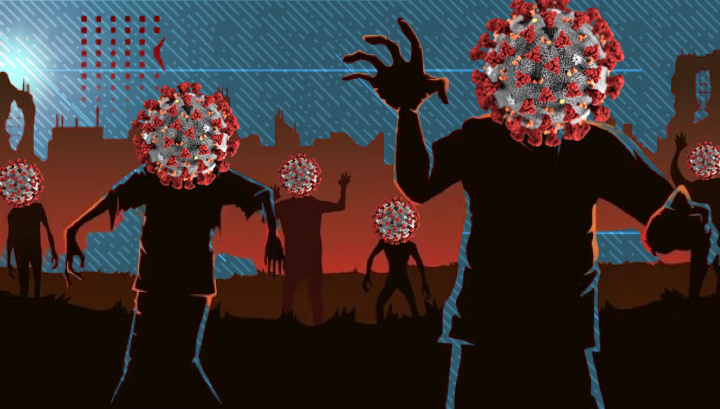As 2024 approaches, the radical lifestyle adjustments everyone experienced during the pandemic might be shrinking in the rearview mirror of our memory.
Neuroscientists and psychiatrists have claimed that this forgetting may be a willful attempt to relieve trauma experienced throughout the COVID era.
If one feels memories from the last three years are beginning to fade, author Thomas E. Woods, Jr. would like to remind you what happened during every season of the pandemic – and he has receipts.
His new book, Diary of a Psychosis: How Public Health Disgraced Itself During COVID Mania (The Libertarian Institute, $19.99, 421 pgs., illustrated), guides the reader through the pandemic to expose how failed guidance and public policy impacted the population.
“So much lunacy was passed off as public health wisdom over the past three years, and I’ll bet even some of the closest observers have forgotten 75 percent of it,” Woods writes in his introduction. “And again and again – and again and again and again and again – the alleged experts would predict one thing, and the opposite would happen.” I remember the precisely three times our "public health" establishment was asked a hard question, and the results were very sad pic.twitter.com/reNxzqfgxc
— Tom Woods (@ThomasEWoods) December 6, 2023
The book is comprised of diary entries taken from Woods’ newsletter to audience members of his podcast, The Tom Woods Show. Each day throughout the pandemic, he would gather data and charts, retell personal stories he’d heard, report on and scrutinize claims from public officials, and share the information with his subscribers.
“The sheer relentlessness [of Diary of a Psychosis] should make it impossible for any truly open-minded reader to conclude anything other than: people’s lives were torn apart, and massive collateral damage (including huge numbers of avoidable, non-Covid deaths) occurred, for no good reason,” he writes.
Woods, a senior fellow of the Mises Institute who holds a PhD from Columbia University, begins the book with an entry from March 23, 2020 wherein he dispels a handful of rumors that captivated the corporate press.
He cites Dr. Patrick Wiater’s claim that a Michigan ICU was full of young adults “fighting for their lives” against the virus. Then, he quotes the doctor admitting that his claim was “exaggerated and untrue … false information.”
Later in the entry, Woods discusses establishment scientists’ failure to conduct a cost-benefit analysis of how the lockdowns would impact public health. He quotes David Katz from Yale, who said early on, “The path we are on may lead to uncontained viral contagion and monumental collateral damage to our society and economy.”
The book proceeds to dismantle the thought process, or lack thereof, behind every baseless policy and harmful guidance issued by the so-called “experts” throughout the pandemic. And what’s impressive about Woods’ work is that he was debunking false claims in real time, one day at a time, for three solid years.
In an Aug. 4, 2020 entry titled “Lockdowns do nothing,” Woods compares data from Brazil, which did not lockdown, to data from Peru, which did. The former reported 435 deaths per million, while the latter reported 582 deaths per million.
The following day, Woods wrote, “As future ages look back on the 21st century, our ‘public health’ establishment will be a laughingstock: dressed in white coats and holding clipboards, but prescribing leeches and rain dances and human sacrifice and calling it ‘science.’”
Diary of a Psychosis prompts deep reflection about more than just the transparent mistakes of virtually every institution: it makes one consider how blindly people went along with flawed or senseless guidance. (Thumbing through the pages reminded me of memories I semi-buried, most notably when I went to Laguna Beach in the spring of 2020 and was informed that the beach was open for standing or swimming, but you weren’t allowed to sit down or you would be asked by lifeguards to leave.)
Though the book is sizeable, which is necessary due to its heavy reliance on facts, graphs, and hard data, it comes with a free companion piece; a second volume titled, Collateral Damage: Victims of the Lockdown Regime Tell Their Stories.
“The lockdowns caused enormous suffering and loss, but you were shamed into not sharing your story,” Woods writes. “If the true history of this period is to be recorded, we need to hear those stories.”
